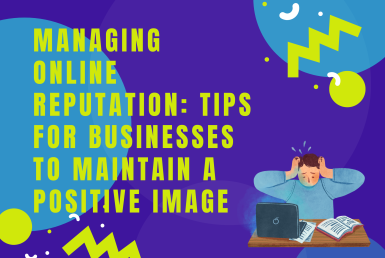E-commerce Marketing Strategies for Businesses: From Start to Success

The rise of e-commerce has opened up new opportunities for small businesses to reach a global customer base and drive sales online. However, succeeding in the competitive e-commerce landscape requires strategic marketing efforts. In this article, we will explore effective e-commerce marketing strategies tailored for small businesses, from laying the foundation to achieving long-term success.
Define Your Target Audience:
Before diving into e-commerce marketing, it’s crucial to clearly define your target audience. Understand their demographics, interests, and pain points. Conduct market research and create buyer personas to guide your marketing efforts. By knowing your audience, you can tailor your messaging, promotions, and product offerings to meet their needs.
Build a User-Friendly Website:
A user-friendly website is the cornerstone of a successful e-commerce business. Ensure your website is visually appealing, easy to navigate, and optimised for mobile devices. Create clear and intuitive product categories, search functionality, and a seamless checkout process. Incorporate high-quality product images, detailed descriptions, and customer reviews to build trust and showcase your offerings.
Optimize for Search Engines (SEO):
Search Engine Optimisation (SEO) plays a vital role in driving organic traffic to your e-commerce website. Conduct keyword research to identify relevant search terms and incorporate them naturally into your website’s content, including product descriptions, meta tags, headings, and URLs. Focus on building high-quality backlinks and providing valuable content to improve your search engine rankings.
Leverage Content Marketing:
Content marketing is a powerful strategy for engaging with your target audience and driving traffic to your e-commerce site. Create informative blog posts, videos, tutorials, or infographics related to your industry or products. Share valuable insights, tips, and advice that resonate with your audience. Promote your content through social media, email marketing, and guest blogging to increase brand visibility and attract potential customers.
Implement Email Marketing Campaigns:
Email marketing is an effective way to nurture customer relationships, drive repeat purchases, and increase conversions. Build an email list by offering incentives like exclusive discounts or content upgrades. Send personalised, targeted emails to subscribers based on their preferences, purchase history, or browsing behavior. Share product updates, special promotions, or relevant content to keep customers engaged and encourage them to return to your store.
Embrace Social Media Marketing:
Social media platforms provide a valuable opportunity for small businesses to engage with their target audience, build brand awareness, and drive traffic to their e-commerce site. Identify the social media platforms where your audience is most active and create a presence there. Share engaging content, run contests or giveaways, collaborate with influencers, and leverage social media advertising to expand your reach and attract potential customers.
Implement Retargeting Campaigns:
Retargeting allows you to reconnect with visitors who have shown interest in your products but did not make a purchase. Use cookies to track these visitors and display targeted ads to them across various websites and social media platforms. By reminding them of your products and offering incentives, you can increase the likelihood of conversion and capture potential sales that may have been lost otherwise.
Monitor Analytics and Iterate:
Regularly monitor and analyse your e-commerce analytics to gain insights into customer behaviour, conversion rates, and marketing campaign performance. Identify what strategies are working and what can be improved. Make data-driven decisions and iterate your marketing strategies accordingly. Continuously test new ideas, measure the results, and refine your approach to optimise your e-commerce marketing efforts.
Conclusion:
E-commerce marketing offers immense opportunities for small businesses to thrive and succeed in the digital marketplace. By defining your target audience, building a user-friendly website, optimising for search engines, leveraging content marketing, implementing email marketing campaigns, embracing social media, utilising retargeting, and monitoring analytics, you can establish a strong online presence and drive sales for your e-commerce business. Apply these strategies consistently, adapt to market trends, and stay customer-focused to achieve long-term success.




